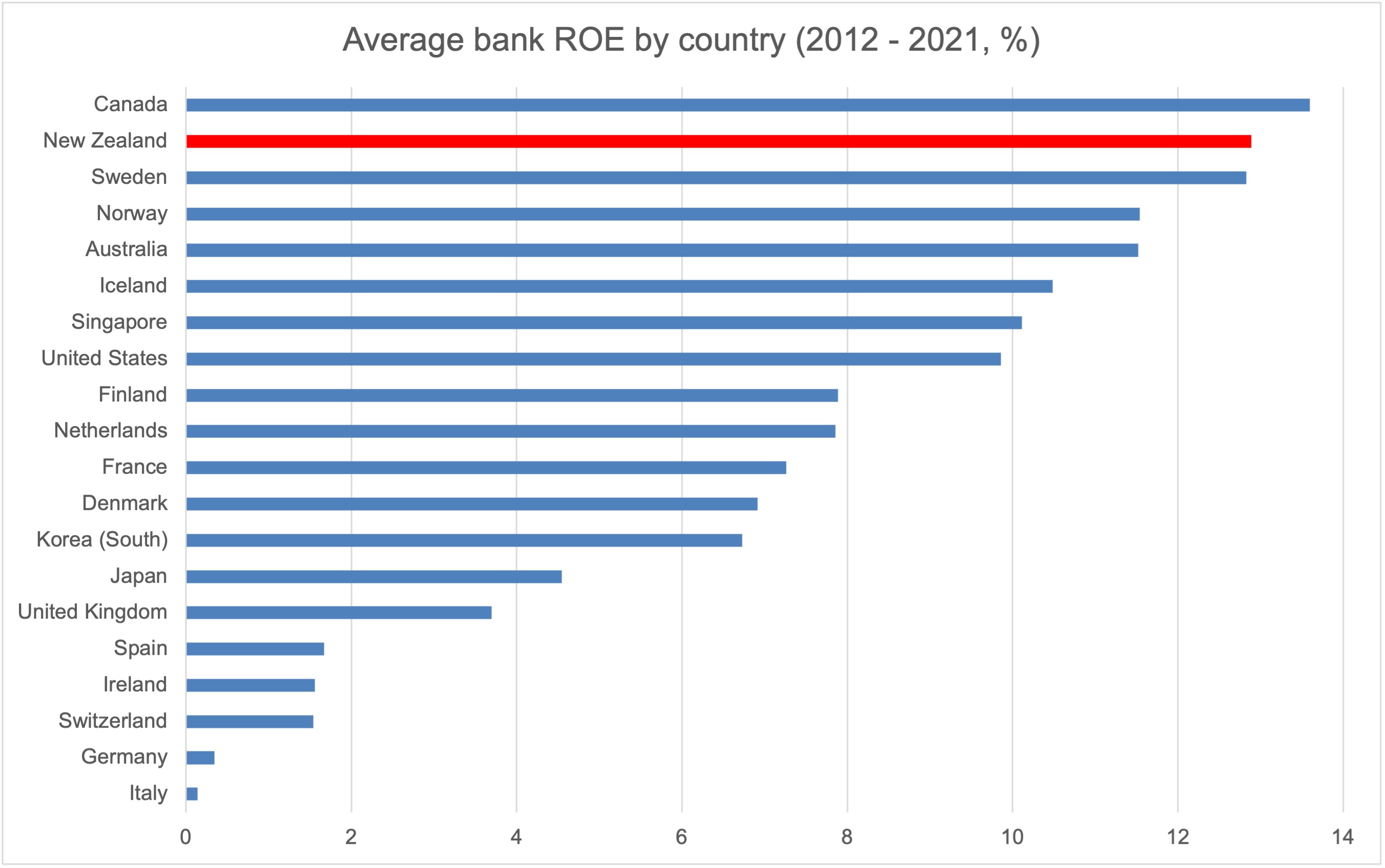Industry representatives share their views

The union for bank workers is calling for a 5% levy on excess bank profits and wants a broader banking inquiry.
The return on equity for the New Zealand banking sector is 13.4%, which is comparatively higher than its overseas counterparts, First Union says.
But the New Zealand Banking Association has spoken in defence of the industry, saying bank profits are a reflection of their size.
Their comments are based on a March 2023 KPMG Financial Institutions Performance Survey, which showed that New Zealand banks made after tax profits of $7.18bn, with almost 90% generated by the big four Australian-owned banks (ANZ, ASB, BNZ and Westpac).
KPMG head of banking and finance John Kensington told Stuff in March that the New Zealand banking sector had a return on equity (ROE) of 13.4%, noting it was lower than the 15% ROE on companies listed in the NZX50. Speaking in defence of the sector, Kensington said it provided “a range of essential services”, and was “fundamental to the economy”, but acknowledged that some would not consider the profits justified.
First Union researcher and policy analyst Edward Miller (pictured above left) said that 10 years of data showed that the return on equity for New Zealand banks was among the highest of its standard comparison countries.
"While the big four banks' 2022 return on equity figures clearly trumped those of their Australian parents, our analysis of World Bank data shows New Zealand banks have some of the highest return on equity figures in the developed world," Miller said.
A graph, compiled and provided by First Union (see below) shows average bank ROE by country from 2012 to 2021. It shows that New Zealand bank ROE (13.4%) was second highest to Canada – above Australia, the US and UK.

Miller said a government inquiry into bank profits was required, but also that a more direct approach was needed.
"We would like to see an additional 5% levy imposed on the profits of any bank that earns more than $500 million in annual profits to fund the establishment and operation of a Ministry of Green Works," Miller said.
"In 2022, a levy like this would have delivered more than $300m in revenue."
He said such a ministry would build crucial public infrastructure, address long-term housing and infrastructure deficits, including mitigating the impact of extreme weather.
"This will help stabilise the New Zealand economy and deliver more balanced growth," Miller said.
New Zealand Banking Association chief executive Roger Beaumont (pictured above centre) told NZ Adviser that banks employed over 28,000 people in New Zealand and lent over $540bn to fund household and business needs.
Beaumont put bank profits into perspective in terms of their contribution to the economy – and cost.
“Last year banks made a net contribution to our economy of $1.92bn. They spent $9.1bn running their businesses and paying tax in New Zealand, compared to combined profits of $7.18bn,” Beaumont said.
New Zealand banks’ average return on equity (ROE) of 13.4% falls in “the middle of the pack” compared to other major New Zealand companies, he said.
“Our banks are profitable, well-regulated, and resilient. That’s important in the current economic climate,” Beaumont said.
Following the well-publicised collapses of US banks Silicon Valley Bank and Signature bank, industry representatives said that the New Zealand banking system was sound and that banks were well regulated, well-capitalised and well-run. Borrowers should not be concerned that New Zealand banks would demand they repay their loan balance in full, although there may be short-term rise in Australian Bank funding costs.
Sam Stubbs (pictured above right), managing director of non-profit fund manager Simplicity, has previously said that he would like to see a proper Commerce Commission enquiry into bank profits.
While he said he was strongly against a one-off banking levy, Stubbs told NZ Adviser that the banking industry was “by far the most profitable industry in the country”.
The banks operating in it (four of which are Australian-owned) are making more money from the average New Zealander than from the average Australian, he said.
“The New Zealand customer is generally 20% to 25% more profitable for the Australian banks here in New Zealand than the average Australian customer is,” he said.
Stubbs acknowledged that Commerce Commission investigations had previously been conducted in industries where there had been consumer concern about the price of the industry, and wider professional concern about cartel like behaviours in those industries.
“We need to understand why, what appears on the face of it to be a competitive industry, how is it that the behaviours seem to be more cartel-like?” he said.
Referring to Beaumont’s comment that New Zealand’s banking sector ROE of 13.4% was “in the middle of the pack”, Stubbs said in his view, this figure should be benchmarked against banks globally rather than compared to other industries.
Profitability both in absolute terms and in comparison, to other banks in the world is high and warrants a proper investigation, he said.
“I’m interested in a proper market study to understand why the barriers to entry are so high, why the profits are so high and what can be done about it long-term to give New Zealanders a fairer deal,” Stubbs said.
Do you agree that a levy be applied and/or that an inquiry be launched into New Zealand bank profits? Share your thoughts in the comments section below.



